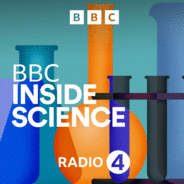
Wissenschaft & Technik
BBC Inside Science Folgen
A weekly programme that illuminates the mysteries and challenges the controversies behind the science that's changing our world.
Folgen von BBC Inside Science
phonostar hat keine Informationen zu diesem Inhalt.
Gehe auf die Website des Senders um weitere Informationen zu erhalten.